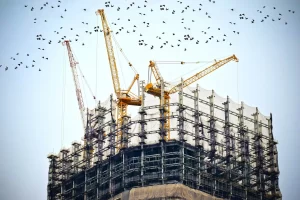Do Builders Have Limited Liability?
Introduction
Builders are professionals who play a vital role in the construction industry. They are responsible for constructing buildings and structures, and their work involves various risks and potential liabilities. Limited liability is a legal concept that offers protection to individuals and businesses from personal financial obligations arising from their professional activities. In this article, we will explore the concept of limited liability in relation to builders and examine whether they enjoy this protection.
Understanding Limited Liability

What is limited liability?
Limited liability is a legal principle that separates the personal assets of individuals or businesses from their business liabilities. It means that if a business entity incurs debts or legal obligations, the personal assets of its owners or shareholders are typically protected. The liability is limited to the extent of their investment in the business. This concept encourages entrepreneurship and investment by reducing the potential risks and financial burdens associated with running a business. For nazbuild sunshine coast builders see more.
Types of business entities and limited liability:
In the context of builders, it is important to understand the types of business entities commonly used in the construction industry and how limited liability applies to them:
- Sole Proprietorship: A builder operating as a sole proprietor has unlimited personal liability. They are personally responsible for all the debts and obligations of the business. There is no legal separation between their personal assets and the business.
- Partnership: In a general partnership, each partner has unlimited personal liability. They are jointly and individually responsible for the partnership’s debts and obligations. Limited liability partnerships (LLPs) provide some protection to partners, where their personal liability is limited to their investment in the partnership.
- Limited Liability Company (LLC): An LLC is a popular business entity for builders. It provides limited liability protection to its owners, known as members. Members’ personal assets are generally shielded from the company’s liabilities. However, this protection can be pierced in cases of fraud, negligence, or personal guarantees.
- Corporation: A corporation is a separate legal entity from its owners, known as shareholders. Shareholders generally have limited liability, and their personal assets are protected from the corporation’s debts and obligations. However, shareholders may still be liable in certain exceptional cases.
Builder’s Liability in Construction Projects
Contractual obligations:
Builders typically enter into contracts with clients, subcontractors, suppliers, and other parties involved in a construction project. These contracts define the scope of work, project timelines, and responsibilities. When builders fulfill their contractual obligations and perform their work diligently, they are less likely to face liability issues. However, if they breach the contract or fail to meet the agreed-upon standards, they may be held liable for damages or losses incurred by the affected parties.

Liability for defects and warranties:
Builders are responsible for the quality of their work and are expected to meet industry standards and regulations. If defects or deficiencies are discovered in their construction work, they may be liable for rectifying the issues and compensating the affected parties. Most jurisdictions have laws and regulations in place that define builders’ liability for defects and provide avenues for affected parties to seek remedies.
Personal injury and property damage:
Builders must ensure that their construction sites are safe for workers, visitors, and neighboring properties. If someone sustains an injury or property damage due to negligence or unsafe conditions on the construction site, the builder may be held liable for the damages. This can include medical expenses, lost wages, property repairs, and other related costs.
Limitations of Limited Liability
Piercing the corporate veil:
While limited liability provides a level of protection for builders, it is not an absolute shield. In certain situations, courts may “pierce the corporate veil” and hold individuals personally liable for the debts and obligations of the business. This typically occurs when there is evidence of fraud, commingling of personal and business assets, or failure to maintain proper corporate formalities. Builders should be aware of these risks and ensure that they maintain proper records and follow legal and ethical business practices.
Personal guarantees:
Builders may also encounter situations where they are required to provide personal guarantees. A personal guarantee is a commitment to take personal responsibility for the debts or obligations of the business. If a builder signs a personal guarantee, their personal assets may be at risk in case of default or non-payment. It is essential to carefully evaluate the implications before agreeing to provide a personal guarantee.
Insurance coverage:
Builders often rely on insurance coverage to mitigate potential liabilities. Liability insurance, such as general liability and professional liability (also known as errors and omissions insurance), can provide financial protection in the event of accidents, injuries, or claims of professional negligence. It is crucial for builders to maintain appropriate insurance coverage and review the policy terms and conditions to understand the extent of their protection.
Conclusion
Builders, like any professionals, face potential liabilities in their work. Limited liability is a legal concept that provides some protection to builders by separating their personal assets from business liabilities. However, the extent of this protection depends on the type of business entity they operate and the circumstances of the case. Builders should be mindful of their contractual obligations, adhere to industry standards, and maintain appropriate insurance coverage to mitigate potential liabilities. It is also important to understand the limitations of limited liability, such as the possibility of piercing the corporate veil and the implications of personal guarantees. By being proactive and taking necessary precautions, builders can navigate the complexities of their profession while minimizing risks and protecting their interests.

